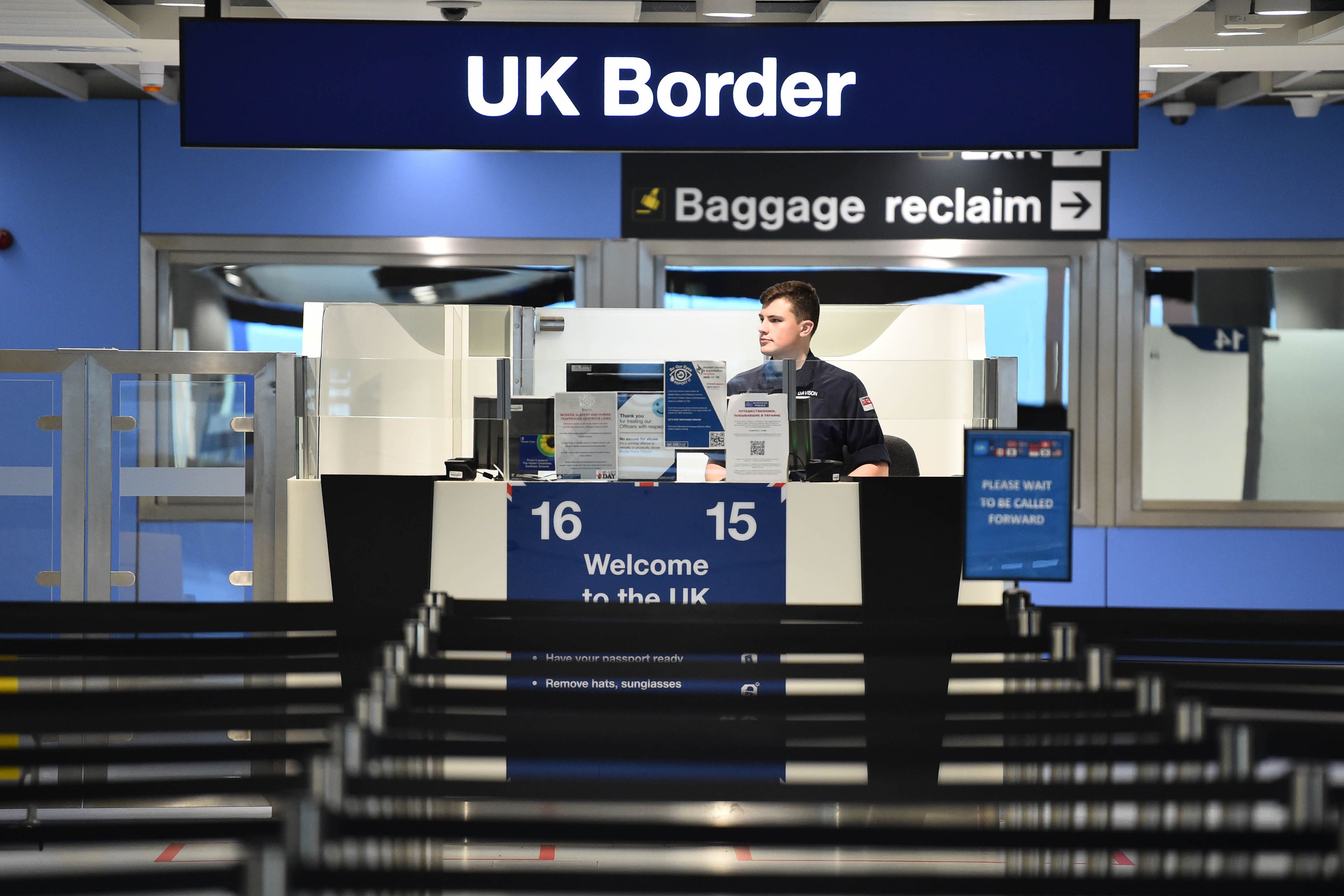Think the Tories want to slash the number of people coming to the UK? Think again
With signs that the British public is more on board with immigration than it has been in decades, Rishi Sunak’s party is struggling to plot a new course


The government’s immigration policy is incoherent.
We have a government which describes net migration as “too high” but doesn’t really want to bring it down, because its higher priority is economic growth. Jeremy Hunt, the chancellor, can point to the Office for Budget Responsibility’s report in March, which upgraded its long-term net migration forecast from 205,000 to 245,000 a year and said that the larger population resulting from this would add 0.5 per cent to GDP by 2027. With growth sluggish, and the UK only just about dodging recession this year, every little helps.
While the Home Office wants to reduce it, other departments use it to solve their problems or avoid new ones.
But which way do the powers that be really want the figure to go? “The government has a sensible, quite liberal immigration policy but ministers dare not speak its name,” one Whitehall insider told me after annual net migration rose to a record 606,000 on Thursday.
The public would be forgiven for thinking that the Conservatives want to end immigration, or at least severely restrict it. It was only last October that Suella Braverman, the home secretary, expressed her desire to see it fall to the “tens of thousands” – the target rashly set by David Cameron in 2010, which has proved a millstone around the Tories’ necks ever since.
Ministers pressed the usual panic button on Tuesday by restricting the number of dependents most foreign students can bring into the UK. However, Braverman failed to win cabinet support for a much wider crackdown – notably on work visas. In the year to March, the number of visas issued to foreign workers and their families almost doubled to 488,000.
But the real picture is more complicated.
The government allows in foreign students to avoid raising tuition fees for British ones or handing out billions to universities. It declines to ensure social care workers are paid a decent wage of £15 an hour, which would encourage Britons to take up jobs in the sector, preferring to issue visas to cheaper foreign workers. It promises to boost skills but allows companies to recruit foreign workers at 20 per cent less than the going rate in sectors with a shortage, leaving business with no incentive to train Britons.
We have a prime minister who campaigned to “take back control” in the 2016 Brexit referendum and who is ideally placed to make the case for his government’s liberalising measures. They are popular with the public – whether that’s accepting people from Ukraine and Hong Kong and foreign students or issuing health and social care visas.
Rishi Sunak could trumpet this but is frightened of his own shadow. Instead of leading public opinion in a positive direction, the Tories’ kneejerk response – he prefers to go with the political flow and say net migration is too high – could encourage the negative public views they fear and increase anti-immigrant sentiment.
The Tories worked themselves into a lather before Thursday’s figures were published, convinced there would be a public backlash. But would there be one without the Tory panic? The number of people who think the level of immigration is about right or too low has more than doubled to 55 per cent in the past 10 years – even though net migration has risen sharply over that period. Only one in four people believes strongly that net migration should be cut. The Tories are talking to their own loyal base rather than winning back voters who have deserted them since 2010, who are more worried about the economy and NHS than migration.
For most voters, the issue is a far cry from the numbers game that our politicians play – they simply want to know that their elected officials have a grip on the tiller. The public do want “control” (and therefore worry about the small boats) but ministers should be more honest about economic growth and public services being dependent on immigration. It’s time they caught up with public opinion.
In recent times, Labour's immigration policy strategy has been to talk about something else but this week I detected a renewed confidence in their position. The Tories' record of broken promises and missed targets is so woeful that it is hard to attack Labour on the issue. The Conservatives are the victims of their own rhetoric since 2010 – and deserve to be.
Polls suggest voters trust Labour more than the Tories on immigration. Labour no longer offers the Tories ammunition: it wants net migration to come down and Yvette Cooper, the shadow home secretary, has declined to describe Labour as a pro-immigration party.
Labour’s policy is more joined-up than the Tories. It would rightly scrap the rule allowing employers to pay migrants 20 per cent less than UK workers. The party’s plan to double the number of medical school places to 15,000 and recruit 10,000 more nurses and midwives would both improve the NHS and eventually reduce the need to bring in foreign staff.
The Tories are in such a perilous position they will throw the kitchen sink at Labour ahead of next year's election; that will inevitably mean attacking Keir Starmer's party as soft on immigration and playing the stale old numbers game. It's not going to work this time.






Join our commenting forum
Join thought-provoking conversations, follow other Independent readers and see their replies
Comments